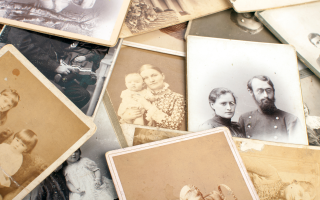“Say no” to all the things that aren’t healthy for you. Some of them are obvious, like smoking and drinking or drugs. Others you might not think of, like eating too much or not enough. Most of us do the things we indulge in, not because we want to, but because we are afraid of the consequences if we don’t.
We all have a tendency to say yes to things that we know we shouldn’t do. Whether it is giving in to the temptation of the chocolate bar on the counter or just not saying no to an invitation to a party, saying yes can make us feel bad. But saying no isn’t always easy either, especially when it comes to social situations. So, what’s the best way to learn to say no?
Direct “no.”
Sometimes when you have a lot on your plate, or you’re simply not able to manage it all on the first try, you need a time out. So, how do you say no? The first step is to be honest with yourself and to say it out loud. Once you’ve said it, you’ll need to consciously make the decision that you really don’t want to do that thing. So, are you ready to say no?
Reflecting “no.”
The reflecting ‘no’ is probably the most important thing to learn if you want to be happy and successful at anything — whether it’s a job, a relationship, a sport, a hobby, or your personal life. We’re all faced with difficult decisions at some point in our lives. Many people have internal dialogue when faced with an unwanted request or obligation; they think “I can’t” or “I don’t want to” instead of “No, Thanks” or “I don’t have time.” That’s because “No” implies not only the action you’re asked to do but also the result of saying it.
Reasoned “no.”
We all know that saying now is a good thing, but sometimes we don’t say anything, or we say yes when we really mean now or can’t do something. Sometimes we’re in situations where saying yes means saying no to the other person, and we feel bad about that, too. So, what’s the deal? The key to saying no without feeling bad about it is simple: being able to give a straightforward answer to the question “Why?” If you can make an honest and—here’s the key—reasoned answer, you can be sure that the person will understand.
Raincheck “no.”
If you do not want to miss out on any of those things, you need to learn how to say no. It may sound easy, but it is not easy if that “thing” is an addiction. And if it is really an addiction, it is not easy to say no to it in the first place. You know that thing—the thing you so desperately want to do, but you just can’t manage? It seems like everyone’s got one, whether it’s watching a movie you know you should miss, making a date you know you’ll make an excuse about, or checking out something you know you shouldn’t be doing.
Broken record “no.”
Sometimes we fall into a pattern that we don’t even realize. When you are in this situation, you have to be willing to break out of this pattern. You have to be willing to say NO! We constantly hear them saying, “I will have the same result as last time,” but you will not have the same result at the end of the day. I have experienced this, and so have many others. In the blogging community, we all know the saying “broken record no” (I need to get out of this situation), but we do not take the necessary steps.
Unfortunately, saying “No” can sometimes be a difficult thing to do. Not everyone has the self-discipline to turn down invitations or the confidence to turn down a request for help. In this post, we’ll learn how to say “No” in ways that are still polite, respectful, and considerate. I know it’s not an easy thing to do in this modern age of instant gratification. Especially when in a relationship, you want to put yourself out there and try things out. It has been said before, but it bears repeating: we are not our best selves when we are in the presence of someone else.
Good relationships are built upon trust, honesty, and mutual respect, and when we feel these things aren’t reciprocated, it can be very uncomfortable. However, even in a relationship, we have to learn how to say “no,” or learn when to say it. As children, we are taught that it’s nice to help others, but we are expected to be selfish when it comes to our own needs.




